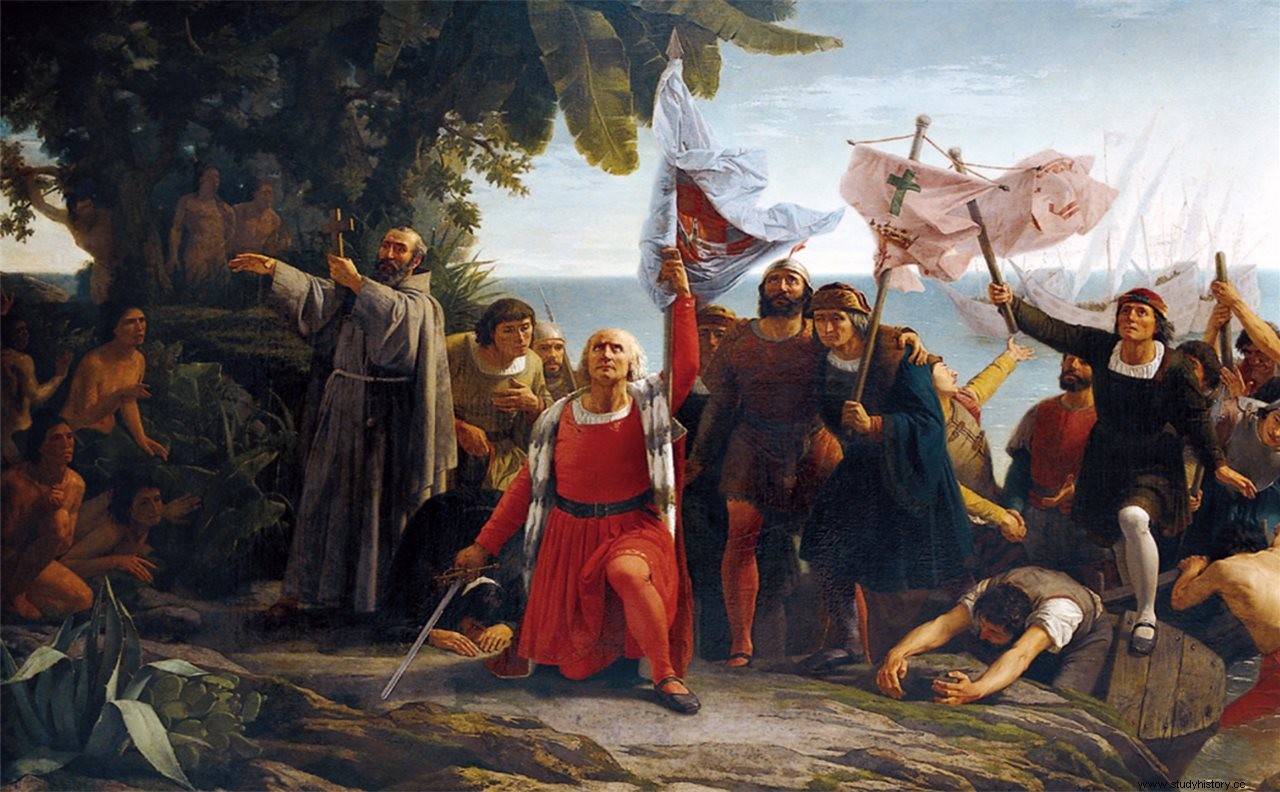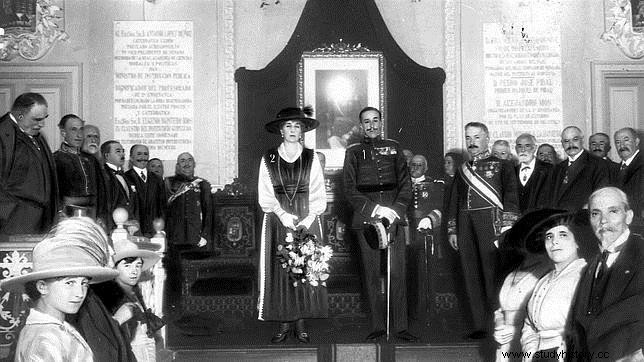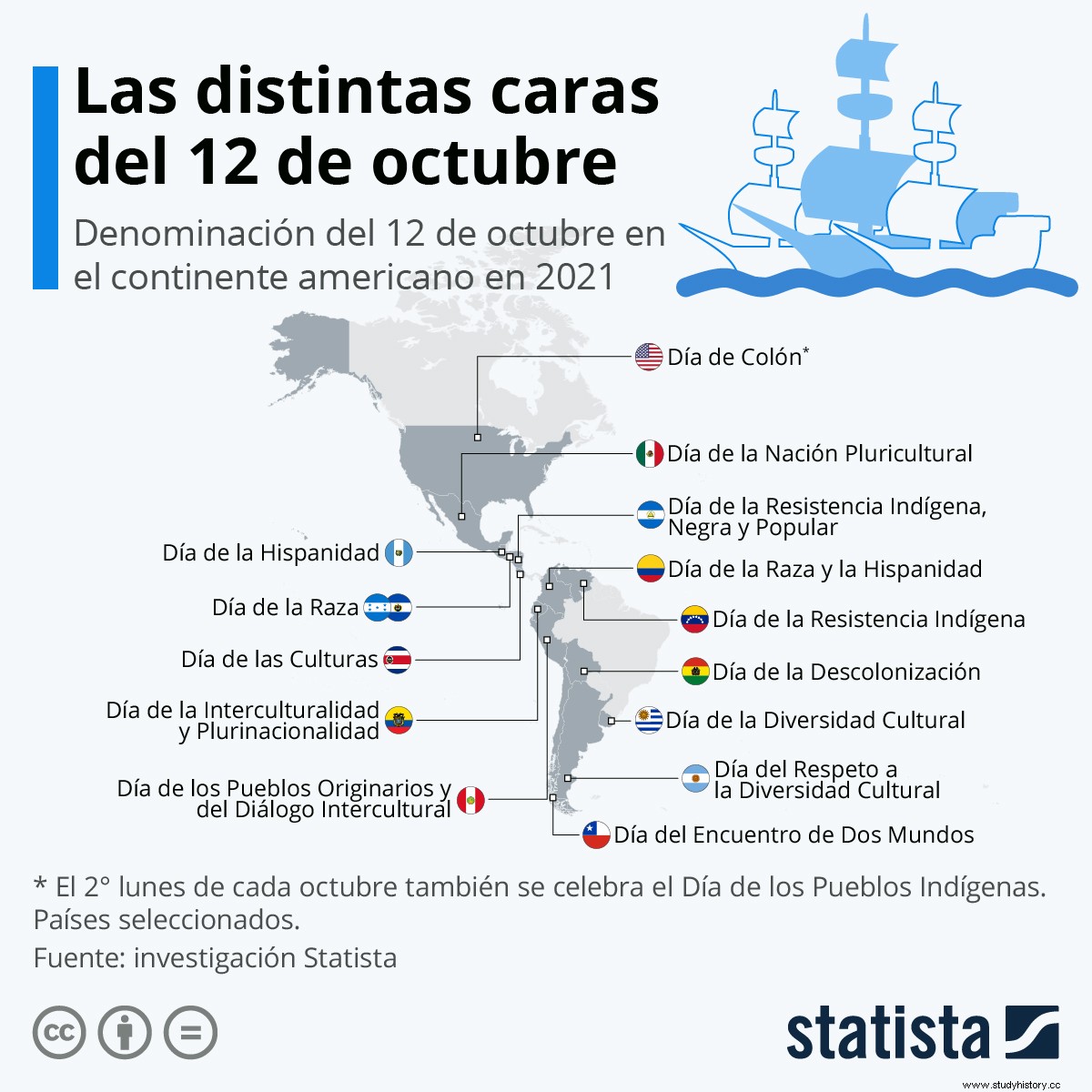
This date is once again a catalyst for the existing controversies, not so much at a historiographical level as a political or citizen one, about the meaning of the date of October 12, 1492 and about the actions of the Hispanic Monarchy in American lands. The proliferation of articles in the press denotes the survival of the issue.
Historical analysis is a scientific method – or, at least, that is the objective – that seeks to know the historical past of societies through the study of available sources. Consequently, it has the pretense of objectivity, but History is a way of knowing that tends to be used by political, social or economic forces to legitimize or justify their proposals or their interested interpretations of the past. Sometimes, this use requires twisting or forcing –when not simple manipulation– to adapt the historiographical discourse to their interests.
In this process of interested use of History, elements are used that nullify any attempt at objectivity. We already know that History can never achieve an objectivity like that of the mathematical or biological sciences, but the renunciation of the attempt, or the honesty of the discourse, is equivalent to turning this form of knowledge into a mere opinion without any scientific validity. The examples of the self-interested and crooked use of History are abundant and exist in all countries. National histories are usually plagued with references to mythologized events or exaltations of characters that, seen with a contemporary perspective –another frequent error of these interpretations since they forget the context–, would be reprehensible. We have just alluded to two of the problems that most often appear when you want to use the past as a throwing weapon:the survival of myths and the appearance of historical anachronism.
A paradigmatic example of what we are talking about is the biased interpretation of the commemoration of October 12, 1492 in Spain. This celebration was created as Día de la Raza in 1912 and passed into law in 1918. During the first Franco regime (1939-1957) there was continuity with this denomination, which served the regime politically to keep alive the illusion of the lost Empire and the international prestige, undermined by its status as a dictatorship. As of 1958, the name was changed to Día de la Hispanidad, a term more allusive to the cultural and idiomatic community and which remained in force until 1981, when it was renamed “National Holiday of Spain and Día de la Hispanidad”; a few years later, in 1987, the mention of Hispanic heritage was eliminated and it remained only on the National Holiday. As we can see, both the name and the meaning of the commemoration have been changing depending on political changes. This shows that our look at the past is always conditioned by the present, and that this is a variable that should not be lost sight of.

At the same time, this festivity is also celebrated in numerous Spanish-speaking countries, although with different names:in Argentina and Uruguay, American Cultural Diversity Day; in Chile, Meeting Day; in Venezuela, the day of the Indigenous Resistance; in the United States, Columbus Day; in Mexico, since 2020, Pluricultural Nation Day, etc. Thus, each country contemplates the commemoration from a different point of view, adapted to the political intentions of its governments, just as Spain has done. The same event admits a plurality of interpretations.

Another issue, which is linked to the previous one, is that of historical revisionism in its pejorative sense. A trend that is gaining strength and is used to manipulate academic historical discourses based on certain political or ideological interests. Historical knowledge is always subject to constant revision, it is one of its virtues, but when this is carried out with the intention of justifying ideologies, approaches or certain acts, ignoring the sources that contradict them, it totally loses its meaning and becomes a weapon. , not in a scientific thought.
For example, in the United States, the figure of Christopher Columbus is questioned, accusing him of being a racist and of massacring indigenous peoples. We can accuse Columbus of that, but in such a case, coherence should lead us to condemn all North American presidents, from the very creation of the country and well into the 20th century, for the plundering and extermination of North American indigenous people. Or not? In both cases the anachronism of the approaches is the same and, if we follow that way of interpreting it, all of history can be transformed into an endless and useless list of insults.

History serves to understand current problems, understand the path that societies have followed to reach today. Once this is done, it is when, in the present, we can modify the results of the historical process that we do not like, but it is impossible to erase or transform the past. Historical memory must remain for the education of new generations. Another thing is the exaltation of values that contemporary societies do not assume –racism, inequality, intolerance, dictatorship, …–, but knowing that these actions existed and that they were imbricated in the mentalities of those societies is, simply, knowing History. All of history, with its lights and shadows.
Bibliography
Anon. 2014. “Why is it called National Day in Spain and not Hispanic Day?” abc . Retrieved October 11, 2021 (https://www.abc.es/espana/20141012/abci-nacional-hispanidad-201410111702.html).
Anon. (2021). "Historical Revisionism". Wikipedia, the free encyclopedia .
Anon. yes F. «Discovery, conquest and colonization with lights and shadows:this is how the arrival of Europeans in America is taught in Spain | Education | THE COUNTRY". Retrieved October 11, 2021a (https://elpais.com/educacion/2021-09-27/descubierta-conquista-y-colonizacion-con-luces-y-sombras-asi-se-ensena-en-espana-la -arrival-of-europeans-in-america.html).
Carbonell, J. (2021). Why is it so difficult to talk about colonialism? EL PAIS .
González, David (dir.) (2019) Gestation, perspectives and historiography of the discovery of America. Madrid:Silex Editions.
Mars, Amanda. (2021). "Christopher Columbus Day continues to lose followers in the United States". The Country . Retrieved October 11, 2021 (https://elpais.com/internacional/2021-10-11/cristobal-colon-sigue-perdiendo-adeptos-en-estados-unidos.html).
Martinez, Almudena. (2014). "Why is it called National Day in Spain and not Hispanic Day?" ABC . Retrieved October 11, 2021 (https://www.abc.es/espana/20141012/abci-nacional-hispanidad-201410111702.html).
Martinez, Samuel. (2021). "Historical revisionism, a double-edged sword between history and politics". infoLibre.es . Retrieved October 11, 2021 (https://www.infolibre.es/noticias/que/2021/02/16/revisionismo_historico_arma_doble_filo_entre_historia_politica_116781_2028.html)
